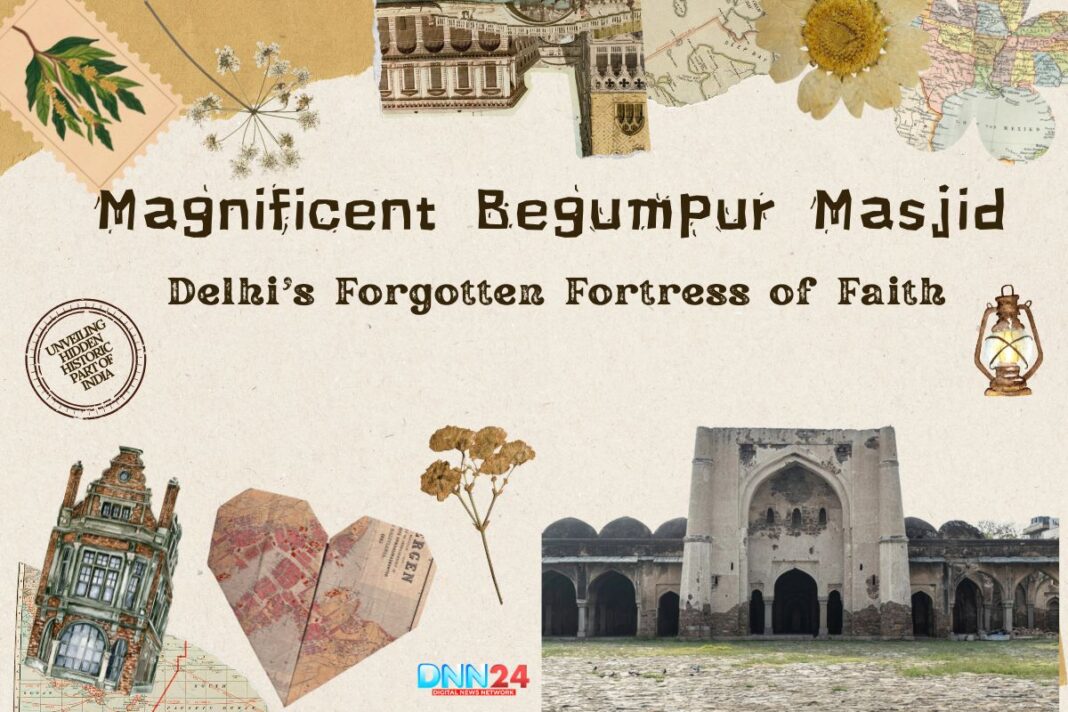Rishi Patialvi lived as a poet of feeling and duty. Born as Bam Dev Sharma in 1917 in Hoshiarpur, Punjab, he grew up among fields, narrow lanes, and voices that treated Urdu as home language. He later worked in a bank in Patiala and wrote poems after work. That rhythm shaped his craft. Day for bread. Night for breath. His poems sound humble yet steady.
ye bhi nahin ki un se mohabbat nahin rahi
Rishi Patialvi
ye bhi hai sach ki did ki hasrat nahin rahi
They hold grief without show and carry hope without noise. He wrote for the common listener, for the boy on a charpai and the clerk on a bus. He kept the past close and faced the present with care. In his life, we see a path many Indians know well. Less comfort. More courage. He turned that daily test into music that still travels from one room to another and quietly stays.
hum uTh jaenge mahfil se to un ko justuju hogi
Rishi Patialvi
hamara zikr aaega hamari guftugu hogi
Born Among Shadows, Dreamt in Poetry
He was born in a respected Mishra family in Bassi Kalaan, where faith in study and hard work guided daily life. The village taught him both restraint and tenderness. You could measure seasons by the crops, and you could measure character by how a family helped a neighbour. Urdu did not come to him through a stiff lesson.
ada-e-husn ki husn-e-ada ki baat hoti hai
Rishi Patialvi
wafa ki aazmaish par jafa ki baat hoti hai
It came through songs, small jokes, evening couplets, and the script traced on mats in school before Partition. The sound of the language entered first. The letters followed. As a child, he watched elders remember lines by Daagh and Ghalib and repeat them with a smile that reached their eyes. He did not call himself a poet in those days. He wrote because feelings were too full to keep.
ummid-e-shauq ho ya wada-e-rahat-fiza koi
Rishi Patialvi
mariz-e-ishq ko achchha nahin karti dawa koi
He would try a sher on the back of a notebook. He would save a thought on a scrap of paper. A small hurt became a line. A festival became a picture. A scolding turned into a promise to do better. The house had modest means, yet it had warmth. He learnt that patience is a kind of wealth. That belief steadied him later when life moved from village to city, and from quiet study to the rush of work.
makan se la-makan tak aa gae hain
Rishi Patialvi
kahan se hum kahan tak aa gae hain
Finding His Name, Finding Himself
In Patiala, he found a desk at the State Bank and a second name for his pen. He chose “Rishi Patialvi” with care. It tied his craft to the city that fed him and to the people whose talk filled his ears each day. Banking trained his mind to stay calm and exact. Poetry trained his heart to stay open. Friends recall that he kept a small slip for sudden lines and sometimes wrote in the margin of a dry report.
aarzu jurm hai mudda’a jurm hai
Rishi Patialvi
us faza mein umid-e-wafa jurm hai
There is a story that he once left a poem on his manager’s table during a hard phase, asking for leave to attend a local mushaira. The poem spoke of duty and longing. The manager read it and granted me leave. That kind act turned into a door. A few such chances, taken with humility, lead to a path.
shuur chahiye izhaar-o-agahi ke liye
Rishi Patialvi
KHushi hai gham ke liye aur gham KHushi ke liye
In Chandigarh, he joined Bazm-e-Adab and found a circle where peers corrected, praised, and pushed him to be clear. He did not rush. He listened. He worked on one ghazal the way a careful mason sets each brick and checks the line. The new name became a promise to carry the city in his voice and to keep the tone honest.
shuur chahiye izhaar-o-agahi ke liye
Rishi Patialvi
KHushi hai gham ke liye aur gham KHushi ke liye
Love, Sorrow, and the Songs of the Heart
The late 1960s and 70s tested his strength. Meetings in the day and mushairas at night demanded balance. Money was steady, not large. Family needs were real. Yet the poems grew deeper. He had seen loss from close quarters and learnt that mourning can give shape to courage. In one famous thought, he wrote that death is also another life. He wanted us to look at parting with a wiser eye.
aatish-e-hijr ko ashkon se bujhane wale
Rishi Patialvi
tujh ko rone bhi na denge ye zamane wale
He wrote “Phool Unki Makaanon Ke” during a lonely spell, when flowers on his balcony kept him company like quiet friends. He would hum his lines, and sometimes tears came with the tune. The pain of Partition lived in him as a memory of language pushed to the side. He would not scold the age for that. He chose to serve the language with better craft. When the city felt rough, he wrote softer.
hum nahin honge yahan parchhaiyan rah jaengi
Rishi Patialvi
tazkire rah jaenge ruswaiyan rah jaengi
When the world felt loud, he chose clarity. Every poem carried a clean image. A door is half open. Rain on a tin roof. A line of light under a curtain. He trusted that a reader would meet him halfway and complete the meaning in their mind. That trust gave his ghazals a rare peace.
wahi tawil si rahen safar wahi tanha
Rishi Patialvi
baDa hujum hai phir bhi hai zindagi tanha
Mastery, Mentorship, and a Quiet Legacy
What set him apart was discipline joined with compassion. He learnt under Naseem Noormahali, who stood in the Daagh Dehlvi tradition. From that stream, he took respect for form and taste for simple, precise words. He did not try to sound grand. He tried to sound true. He kept his job and met his duties, yet he carved hours from the night to polish a matla or search for a perfect radeef.
aatash-bajaan hain shiddat-e-soz-e-nihan se hum
Rishi Patialvi
is par bhi kaam lenge na aah-o-fughan se hum
His books took shape slowly. “Reg-e-Rawaan,” “Phool Unki Makaanon Ke,” and “Shafaq Rang Aansoo” grew page by page, often in a small room filled with books but not luxuries. Young writers came with notebooks. He served chai, listened to their attempts, and offered corrections that did not hurt. He believed a tender word can save a poet from silence.
ahl-e-ishq ki hasti kya ajib hasti hai
Rishi Patialvi
marg-e-na-gahani ko zindagi tarasti hai
Letters travelled between cities, carrying advice and hope. In his last years, he moved to Mumbai and kept writing through spells of poor health. He held poetry like a prayer. He left this world in 1999 after a heart attack. Friends gathered and read his lines in quiet rooms. No big light, yet a steady glow. Today, his verses still comfort the tired and guide the new. His schooling was of the heart, and that schooling goes on.
dil ki rudad nigahon se bayan hoti hai
Rishi Patialvi
dard-mandon ki KHamoshi mein zaban hoti hai
Life Balancing Duty and Poetry
Rishi Patialvi shows how an Indian life can hold art and duty together. He grew from village soil, took a city’s name, stood by Urdu with care, and wrote for people who do not seek show. He learnt from masters, gave time to students, kept a house running, and still found music. His poems do not chase shine. They keep faith with truth and feeling. That is why they last. In every line that finds light inside pain, you can hear his voice, steady and warm, asking us to live with grace.
tasawwur se nazare tak farogh-e-sehr-e-hairat hai
Rishi Patialvi
haqiqat bhi fasana hai fasana bhi haqiqat hai
Also Read: Sahir Hoshiarpuri: A River of Poetry and Resilience
You can connect with DNN24 on Facebook, Twitter, and Instagram and subscribe to our YouTube channel.



